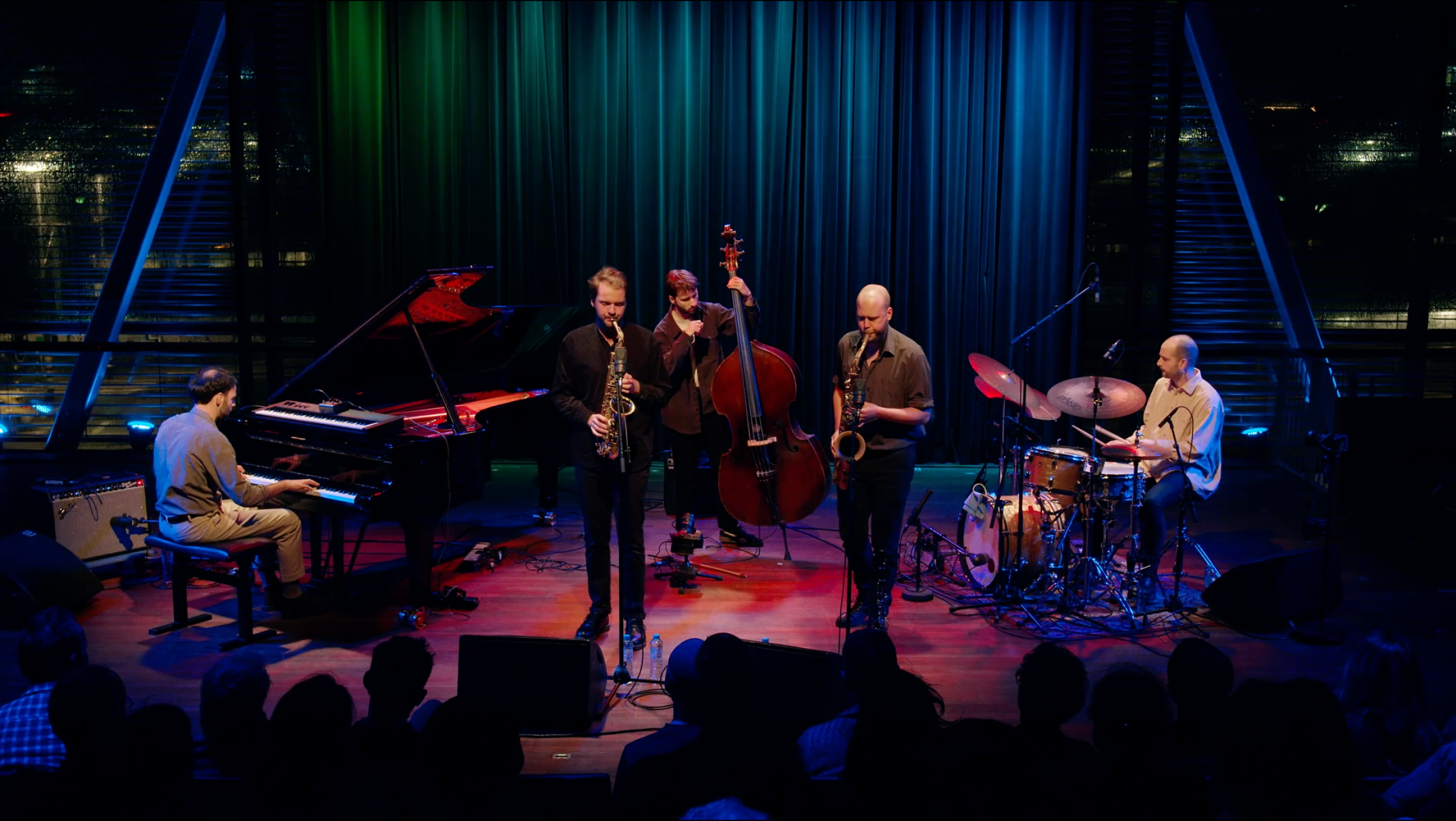With his new single “Raw Beans,” Dutch drummer and composer Ruud Voesten continues his extraordinary journey through Dante Alighieri’s Divine Comedy, translating the timeless poetry of Purgatorio into a haunting and deeply emotional musical language. Following the critical success of his 2023 debut Ambrosia — which explored the fiery depths of Inferno — Voesten now ascends into the reflective, turbulent middle realm of Dante’s epic with Ambrosia II, set for release on November 7th through ZenneZ Records.

Where Ambrosia was fierce and chaotic, “Raw Beans” unveils a different kind of intensity — quieter, more inward, yet just as gripping. Inspired by the terrace of Gluttony in Purgatorio, the piece captures the torment of souls who suffer thirst and hunger while surrounded by unreachable fruit and flowing water. Voesten distills this imagery into an intimate duet for clarinet and piano, creating a soundscape that feels suspended between desire and denial.
The track opens with a delicate piano motif, sparse and hesitant, setting an atmosphere of restraint and longing. When the clarinet enters, its tone is both mournful and searching — as if reaching for something that remains just out of grasp. The interplay between the two instruments mirrors Dante’s vision perfectly: temptation within reach, redemption still distant. Every phrase feels like an emotional negotiation between hope and suffering, between human weakness and spiritual yearning.
Voesten’s strength as a composer lies in his ability to fuse classical form, chamber intimacy, and jazz sensibilitywithout compromise. “Raw Beans” draws clear lines from Messiaen’s harmonic mysticism and Debussy’s coloristic touch, while maintaining the rhythmic awareness of a jazz musician who listens deeply to silence as much as to sound. The piece breathes like a living organism — patient, organic, unhurried — yet it carries an undercurrent of tension that never quite releases.

This combination of control and emotion defines Voesten’s creative voice. By choosing to write a duet rather than a larger ensemble piece, he magnifies vulnerability; the music feels exposed, almost fragile. It’s chamber music that speaks the language of existential struggle. There are no grand gestures or dramatic climaxes — instead, the drama unfolds in micro-movements, in the spaces between notes, in the aching pauses where reflection becomes as powerful as sound.
The story behind Ambrosia II adds even more depth to the listening experience. Invited to stay at Il Palmerino in Florence — a place steeped in art and history where Dante himself spent much of his life — Voesten immersed himself in the Italian landscape and culture to compose this new body of work. You can hear that influence in every texture: the stillness of a sunlit cloister, the echo of church bells, the weight of centuries pressing gently on the music.
In “Raw Beans,” Voesten doesn’t just set Dante’s imagery to music; he transforms it into a contemporary meditation on restraint, temptation, and the painful beauty of spiritual growth. It’s both ancient and modern, cerebral yet deeply emotional — the sound of a composer who treats literature, faith, and art as part of one continuum.
As a preview of Ambrosia II, “Raw Beans” promises an album rich in atmosphere and meaning — music that invites listeners not just to hear, but to contemplate. Ruud Voesten has once again proven that jazz and classical composition can coexist not just technically, but philosophically, offering us a rare modern soundtrack to the timeless human journey toward grace.
Connect with RUUD VOESTEN on
